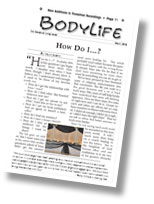 Someone loaned me a copy of Robert Farrar Capon’s Kingdom, Grace and Judgment with the warning not to let anyone see me reading it because some think he is a heretic. Of course that piqued my interest right away. I don’t know about the heretic part (or at least I haven’t come to it yet) but this Episcopal priest has some interesting things to say about the parables of Jesus.
Someone loaned me a copy of Robert Farrar Capon’s Kingdom, Grace and Judgment with the warning not to let anyone see me reading it because some think he is a heretic. Of course that piqued my interest right away. I don’t know about the heretic part (or at least I haven’t come to it yet) but this Episcopal priest has some interesting things to say about the parables of Jesus.
I’ll warn you, however, that this is no easy read. He’s overwhelmed with word comparisons, and makes some wild conjectures about things Jesus might have been thinking at various times, but I love some of the places where he lands on interpreting the parables of Jesus.
At the beginning he has a fascinating discussion of what he calls right-handed power, which is using the force you need to get the result you want. And yet the One who has all the right-handed power to force his way on us, has decided that relationships of love are far more valuable to him than terrified slaves. Capon writes…
“Unfortunately (right-hand power) has a whopping limitation. If you take the view that one of the chief objects in life is to remain in loving relationships with other people, straight-line power becomes useless. Oh, admittedly, you can snatch your baby boy away from the edge of a cliff and not have a broken relationship on your hands. But just try interfering with his plans for the season when he is twenty, and see what happens, especially if his chosen plans play havoc with your own. Suppose he makes unauthorized use of your car, and you use a little straight-line verbal power to scare him out of doing it again. Well and good. But suppose further that he does it again anyway—and again and again and again. What do you do next if you are committed to straight-line power? You raise your voice a little more nastily each time till you can’t shout any louder. And then you beat him (if you are stronger than he is) until you can’t beat any harder. Then you chain him to a radiator till… But you see the point. At some very early crux in that difficult, personal relationship, the whole thing will be destroyed unless you—who on any reasonable view, should be allowed to use straight-line power—simply refuse to use it; unless, in other words, you decide that instead of dishing out justifiable pain and punishment, you are willing, quite foolishly, to take a beating yourself.” (page 18-19)
He then defines left-handed power as, “power that looks for all the world like weakness.” But it is the power that Jesus vests his kingdom as the dying, rising and disappearing Messiah. And yet he warns us that we all prefer right-hand power.
“Every one of us would rather chose the right-handed logicalities of theology over the left-handed mystery of faith. Any day of the week—and twice on Sundays, often enough—we will labor with might and main to take the only thing that can save anyone and reduce it to a set of theological club rules designed to exclude almost every one.”
The discussion fascinates me, because I think he puts his finger on something very important. The kingdom of God comes in the mystery of his power transforming lives, not in our power to compel others to act the way we want them to. Right-hand power conforms, but left-hand power transforms. I like how he plays this out in the ministry of Jesus. He was touching people at a relational level, not an I’m-God-and-I’m-here-to-make-you-do-it-my-way. The one will produce slaves or hypocrites, but not children transformed by the Father of all!
There are some other nuggets in that book I’ll let you in on as well over the next few weeks…
 Here’s more from Robert Farrar Capon’s Kingdom, Grace and Judgment. Here is some thoughts he had about the Ascension:
Here’s more from Robert Farrar Capon’s Kingdom, Grace and Judgment. Here is some thoughts he had about the Ascension:





 This is the other letter I told you about yesterday. If you didn’t read that one you might check out
This is the other letter I told you about yesterday. If you didn’t read that one you might check out  A new issue of
A new issue of